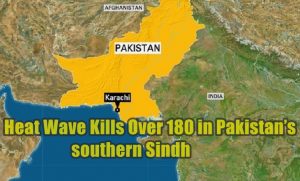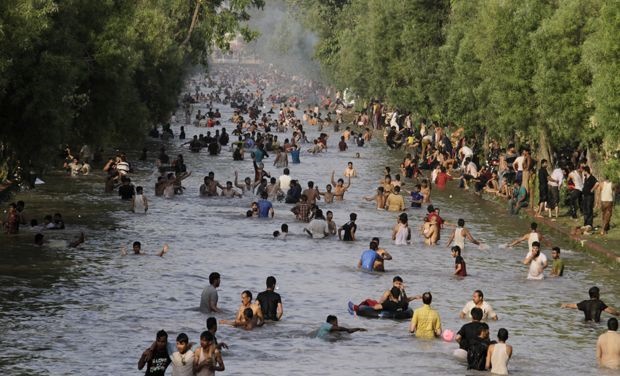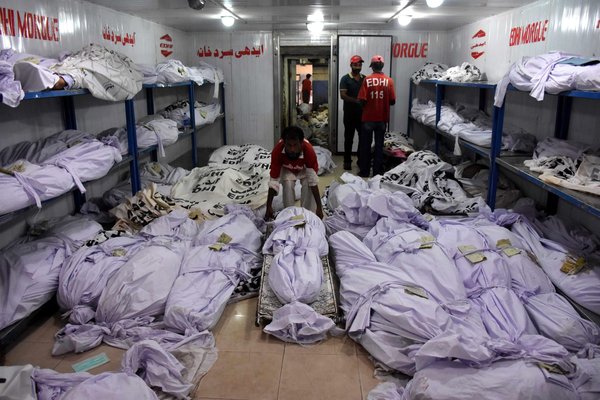
Heat Wave Kills over 180 in Pakistan’s Southern Sindh
Heat wave over three days has killed more than 180 people, including women and children in Pakistan’s southern Sindh province officials said on Monday, leading authorities to declare an emergency as the electricity grid crashed and bodies stacked up in the morgues. The heat wave, sweeping across the Sindh province and more than 180 people had died of heat-related problems since the start of Ramzan Friday night Sabir Memon, Sindh province’s additional secretary for health, told Reuters.

“We have until yesterday evening had nearly 200 deaths from this heat wave,” said Seemi Jamali, medical superintendent at Jinnah Hospital. “These 200 dead bodies have got from the scorching heat wave and those who passed away in the hospital while under treatment for heat stroke and dehydration,” said by Seemi Jamali. The outages hit large portions of Pakistan’s financial heart of Karachi and home to 20 million people, where residents lit bonfires in protest. Unclaimed bodies were being rapidly buried to create space in the morgues, Anwar Kazmi, a senior official of the charitable Edhi Foundation, told Reuters. “We are urging people to bury their dead at the earliest in view of the current heat wave and poor power situation,” he said. “We have not run out of capacity at the morgue, but buried 30 unclaimed bodies this morning to create more space.”
The Sindh government has imposed a state of emergency at all hospitals, cancelling leave for doctors and other medical staff and is increasing stocks of medical supplies. “Hundreds of patients suffering from the heat wave are being treated at government hospitals,” Saeed Mangnejo, the provincial health secretary, told Reuters.

Temperature soared to 44 degrees Celsius (111 Fahrenheit) on Saturday and hovered at 43 degrees Celsius (109 Fahrenheit) on Sunday, coinciding with a surge of demand for power as families observed Ramadan, when Muslims fast during daylight hours.
Both the federal government and K-Electric, the private company that supplies Karachi with power, had promised there would be no outages during the time when families gathered to break their fast at sunset. But power cuts left many families without water, air-conditioning, fans and light.Officials from K-Electric said the heat wave had triggered unprecedented demand and that many faults were caused by illegal hookups overloading power lines. Teams trying to fix the faults had been attacked and employees badly beaten, said spokesman Taha Siddiqui. “The relatives bring the bodies to us because of the extreme hot conditions they can’t keep the bodies of their dear ones at home for long,” said Anwar Kazmi, a spokesman for the Edhi welfare trust and foundation, a charity organisation.
Corruption and mismanagement mean most of Pakistan usually suffers at least eight hours of daily power cuts. Those in poorer areas are hit even harder.The cash-strapped government sells power for less than the cost of production, but its late payments to suppliers cause a chronic shortage. Many wealthy or influential families and factory owners exacerbate the problem by refusing to pay their bills or cutting deals with corrupt power officials.